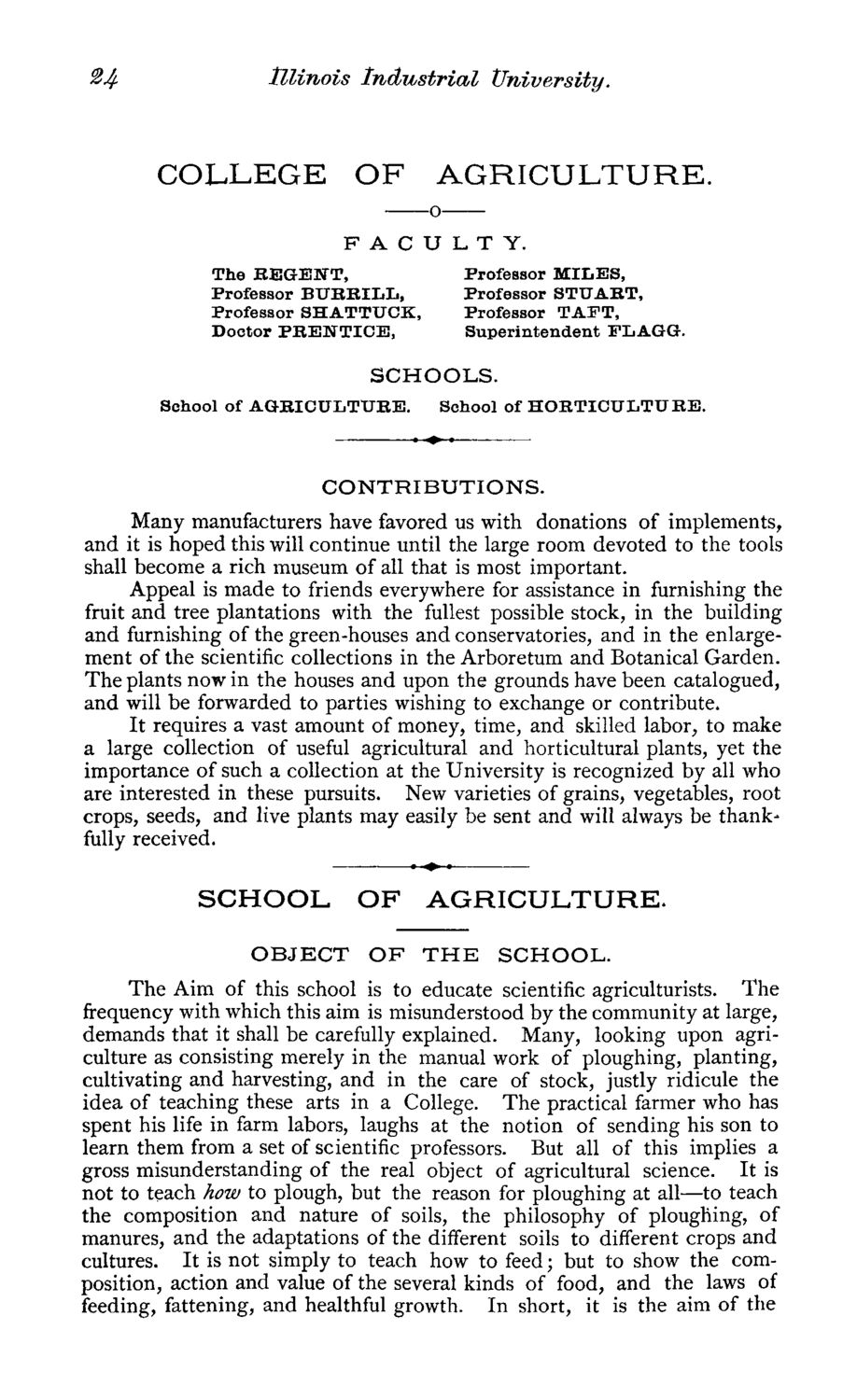| |
| |
Caption: Course Catalog - 1872-1873
This is a reduced-resolution page image for fast online browsing.

EXTRACTED TEXT FROM PAGE:
Illinois Industrial University•. COLLEGE OF AGRICULTURE. FACULTY. The REGENT, Professor B T J B B I I I I I , Professor SHATTUCK, Doctor PBENTICE, Professor MILES, Professor STUAKT, Professor TAPT, Superintendent FLAGG. SCHOOLS. School of AG-BICULTTJBE. School of HOBTICULTUBE. • • • CONTRIBUTIONS. Many manufacturers have favored us with donations of implements, and it is hoped this will continue until the large room devoted to the tools shall become a rich museum of all that is most important. Appeal is made to friends everywhere for assistance in furnishing the fruit and tree plantations with the fullest possible stock, in the building and furnishing of the green-houses and conservatories, and in the enlargement of the scientific collections in the Arboretum and Botanical Garden. The plants now in the houses and upon the grounds have been catalogued, and will be forwarded to parties wishing to exchange or contribute. It requires a vast amount of money, time, and skilled labor, to make a large collection of useful agricultural and horticultural plants, yet the importance of such a collection at the University is recognized by all who are interested in these pursuits. New varieties of grains, vegetables, root crops, seeds, and live plants may easily be sent and will always be thankfully received. SCHOOL OF AGRICULTURE. OBJECT O F T H E SCHOOL. The Aim of this school is to educate scientific agriculturists. The frequency with which this aim is misunderstood by the community at large, demands that it shall be carefully explained. Many, looking upon agriculture as consisting merely in the manual work of" ploughing, planting, cultivating and harvesting, and in the care of stock, justly ridicule the idea of teaching these arts in a College. The practical farmer who has spent his life in farm labors, laughs at the notion of sending his son to learn them from a set of scientific professors. But all of this implies a gross misunderstanding of the real object of agricultural science. It is not to teach how to plough, but the reason for ploughing at all—to teach the composition and nature of soils, the philosophy of ploughing, of manures, and the adaptations of the different soils to different crops and cultures. It is not simply to teach how to feed; but to show the composition, action and value of the several kinds of food, and the laws of feeding, fattening, and healthful growth. In short, it is the aim of the
| |